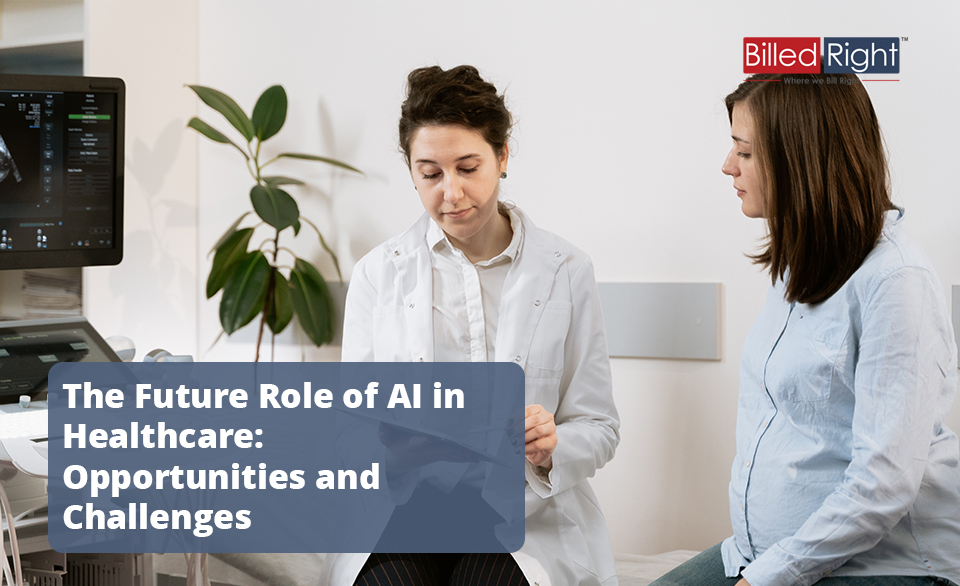Artificial intelligence has the potential to revolutionize the healthcare industry by enabling more accurate diagnoses, individualized treatment strategies, and efficient data analysis. In recent years, there has been a substantial surge in the utilization of AI in healthcare, with several applications ranging from remote patient monitoring to medication development. As artificial intelligence advances, it has the potential to transform the way we approach healthcare, from preventative medicine to care delivery. However, the use of AI in healthcare brings key ethical concerns, such as the possibility for bias in algorithms and the necessity to protect patient data. In this blog article, we will look at the current and future potential of AI in the healthcare industry, as well as the obstacles and ethical concerns that must be addressed as AI becomes more widely used in healthcare.
How AI is being used in healthcare
AI is being utilized to improve healthcare outcomes and increase efficiency in a variety of ways. Artificial intelligence has made substantial advances in diagnosis and treatment planning. AI algorithms can assist find patterns and provide treatment recommendations by evaluating massive volumes of data, such as medical records, imaging studies, and lab results. AI can also be used to evaluate data from electronic health records and other sources in order to identify risk factors and forecast future health difficulties, allowing preventative actions to be implemented.
Another application of AI in healthcare is data analysis to inform decision making. AI, for example, can be used to evaluate clinical trial data to find trends and provide recommendations for future drug development. Artificial intelligence can also be used to evaluate population health data in order to find trends and drive public-health initiatives. Additionally, AI is being utilized to improve healthcare results in personalized medicine, which entails adapting treatment programs to the specific needs and features of individual patients.
Challenges and ethical considerations
Keeping data secure and private is a major concern when using AI in healthcare. It is crucial to make sure that healthcare data is shielded from unwanted access or misuse as it is typically sensitive and private. This includes preventing data leaks and unlawful patient data sharing.
Another important consideration is the potential for bias in AI algorithms. If the data used to train AI algorithms is biased, the algorithms themselves may perpetuate and amplify those biases. This can lead to unfair and unequal treatment of certain groups of people. For example, if an AI algorithm used to make treatment recommendations is trained on data that is predominantly from white patients, it may not accurately reflect the needs of patients from other racial or ethnic groups.
The impact of AI on employment in the healthcare industry is another consideration. While AI has the potential to increase efficiency and reduce workload for healthcare providers, it may also lead to job displacement. It is important to carefully consider the potential impact on employment and ensure that any changes are implemented in a way that is fair and equitable for all stakeholders.
Ensuring responsible and ethical use of AI in healthcare is critical. This includes considering the potential impacts on patients, healthcare providers, and society as a whole. It is important to have clear guidelines and policies in place to ensure that AI is used ethically and responsibly in the healthcare industry.
Future potential of AI in healthcare
One area where AI has the potential to greatly impact healthcare is in the realm of predictive healthcare and preventative medicine. By analyzing data from electronic health records, wearable devices, and other sources, AI algorithms can identify patterns and predict future health issues. This could allow for early intervention and the implementation of preventative measures, potentially improving outcomes and reducing healthcare costs.
Another potential benefit of AI in healthcare is improved access to care in underserved areas. For example, AI-powered telemedicine platforms can allow patients in rural or underserved areas to connect with healthcare providers remotely, increasing access to care. AI can also be used to streamline the healthcare delivery process, increasing efficiency and freeing up time for healthcare providers to focus on patient care.
In addition, AI has the potential to enhance decision making and efficiency for healthcare providers. By analyzing data and providing recommendations, AI can assist healthcare providers in making informed decisions and improving patient outcomes. However, it is important to note that AI is not meant to replace human healthcare professionals, but rather to augment their work. By leveraging the strengths of both humans and AI, the healthcare industry can maximize the potential benefits of AI.
Conclusion
AI has the potential to revolutionize the way we approach healthcare, from diagnosis and treatment planning to data analysis and decision making. While there are significant challenges and ethical considerations to be addressed, the future potential of AI in healthcare is vast. From predictive healthcare and preventative medicine to improved access to care in underserved areas and enhanced decision making and efficiency for healthcare providers, the opportunities for AI to improve healthcare outcomes and increase efficiency are numerous. However, it is important to carefully consider the potential impacts on patients, healthcare providers, and society as a whole, and ensure that AI is used ethically and responsibly in the healthcare industry.


 Insurance Eligibility
Insurance Eligibility Charge Posting
Charge Posting Documentation Review
Documentation Review Claim Submission
Claim Submission Denial Management
Denial Management Payment Posting
Payment Posting Accounts Receivables Follow-up
Accounts Receivables Follow-up Patient Collections
Patient Collections Reporting
Reporting Account Management
Account Management